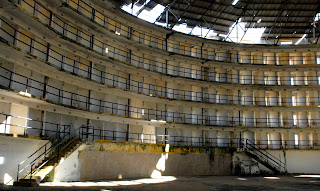 In Cuba prostitution is not a crime, this statement is repeated over and over by the media and by people who are considered to have due authority to do so.
In Cuba prostitution is not a crime, this statement is repeated over and over by the media and by people who are considered to have due authority to do so.
In the special part of the Penal code on crimes, this figure does not appear.
Thus, many ask, “How is it that there are so many who are detained for this type of activity?”.
Our society, like others, suffers from it and also considers prostitution as a reprehensible vice, affecting morality and decency.
This “antisocial behavior,” as it is named in the criminal law, can be punished with rehabilitation measures of up to four years of detention in certain establishments.
These security measures, which are called “pre-criminal” and whose purpose is expressed in the law and complementary provisions and which prevent the subject from committing a crime, are imposed on prostitutes. So, is prostitution a crime or not?
If the objective of these security measures is to to avoid crime, then what crime can be committed when a young girl dedicates herself to the oldest profession?
We must look at the causes and conditions that have generated the excessive increase of this activity, and try to eliminate them at their source.
Despite the rigor of pre-criminal security measures, with almost the same regulations as other punishments, although classified as protected, many repeat their act.
In this area, a sad reality is presented in everything that revolves around prostitution, persons accused of and punished for renting a room to a prostitute, not for the exercise itself but as a temporary dwelling, or the hired driver that transfers them to where they will practice the oldest profession.
The subject presented is complex, others who are licensed in the matter should offer their opinion in respect to this matter.

By Osvaldo Rodríguez Díaz
Translated by: Shane J. Cassidy
25 October 2013





